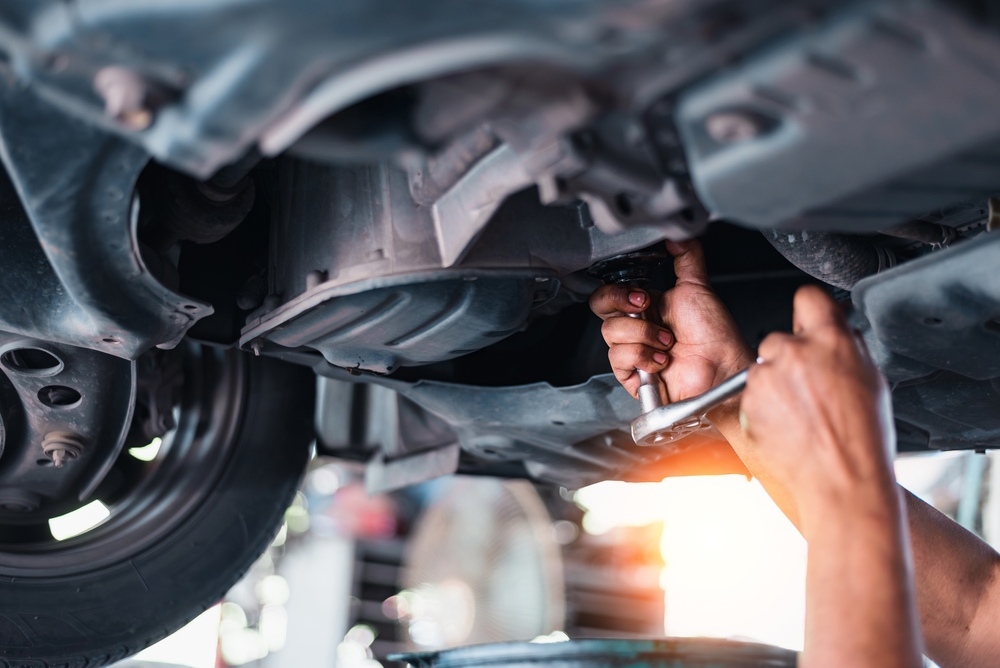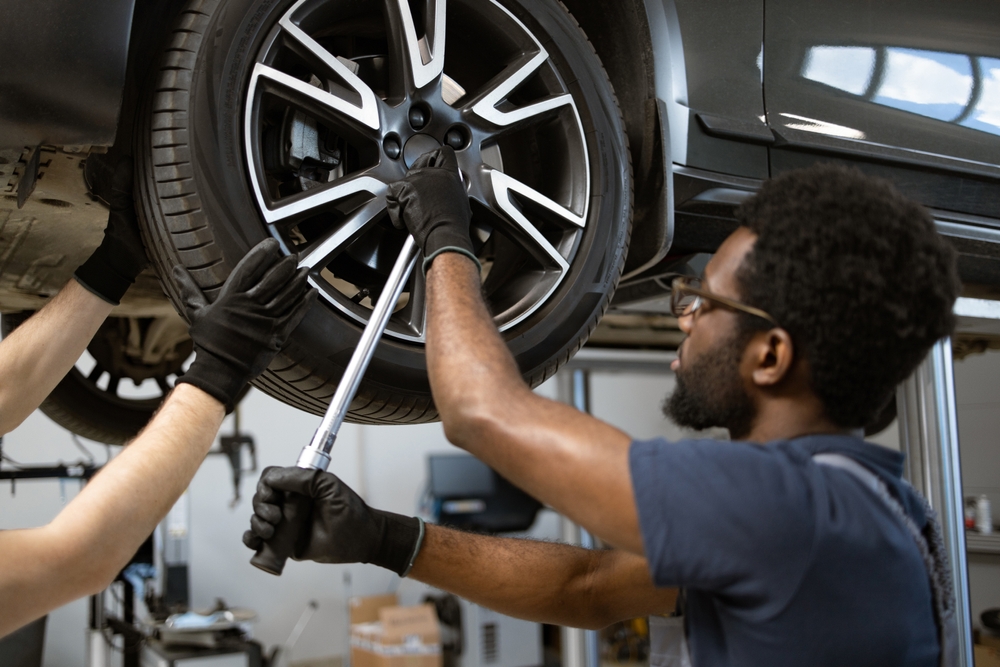
BMW, often synonymous with luxury, performance, and status, is a dream car for many. But owning a BMW comes with its own set of responsibilities, particularly when it comes to maintenance. If you’re a proud BMW owner or planning to become one, understanding the costs associated with maintaining these premium vehicles is crucial. This comprehensive guide will delve into the costs, provide insights on maintaining your BMW efficiently, and help you make informed decisions.
Why is BMW Maintenance More Expensive?
Before diving into the numbers, it’s essential to understand why BMW maintenance tends to be more expensive than the average vehicle. The reasons include:
- High-Quality Parts: BMWs are equipped with high-performance parts designed to offer superior driving experience, safety, and longevity. However, these parts come at a premium cost.
- Advanced Technology: BMWs feature cutting-edge technology, including complex electronic systems and high-performance engines. This advanced technology requires specialized diagnostic tools and skilled technicians.
- Specialized Service: BMWs often require maintenance from certified technicians who are trained to handle the intricacies of these vehicles. Labor costs are typically higher due to the specialized knowledge needed.
- Regular Maintenance Schedule: BMW recommends more frequent maintenance intervals compared to some other brands to ensure optimal performance, which can add to the overall cost.
Average BMW Maintenance Costs in 2024
The cost of maintaining a BMW can vary depending on the model, age, mileage, and driving conditions. Below is a breakdown of the estimated costs for different aspects of BMW maintenance:
1. Oil Changes
Oil changes are one of the most common maintenance tasks for any vehicle. For BMWs, the cost of an oil change can range from $150 to $250. The higher cost is due to the use of synthetic oil, high-quality oil filters, and sometimes the inclusion of additional inspections during the service.
Frequency: BMW typically recommends oil changes every 10,000 to 15,000 miles or once a year, whichever comes first. However, driving in extreme conditions or frequent short trips may necessitate more frequent changes.
2. Brake Pads and Rotors Replacement
Brakes are crucial for safety, and BMW owners can expect to pay a premium for maintaining their braking systems. The cost to replace brake pads ranges from $250 to $500 per axle. If the rotors also need replacement, the cost can go up to $500 to $800 per axle.
Frequency: Brake pads may last between 30,000 to 60,000 miles, depending on driving habits and conditions. Rotors may last longer but should be inspected regularly.
3. Tire Replacement
BMWs often come equipped with high-performance tires that need to be replaced more frequently than standard tires. The cost for replacing all four tires on a BMW can range from $800 to $1,500, depending on the tire type and model.
Frequency: Tire lifespan can vary, but most BMW owners need to replace their tires every 30,000 to 50,000 miles.
4. Battery Replacement
BMWs have complex electrical systems, and battery replacement can be more expensive than in non-luxury cars. The cost for a new battery, including installation, can range from $300 to $500.
Frequency: Car batteries typically last between 3 to 5 years, but factors like climate and driving habits can affect this.
5. Spark Plug Replacement
Spark plugs are vital for engine performance. Replacing spark plugs in a BMW can cost between $150 and $400, depending on the model.
Frequency: BMW usually recommends replacing spark plugs every 60,000 to 100,000 miles.
6. Transmission Fluid Change
BMWs require high-quality transmission fluid, and changing it can be more expensive. The cost for a transmission fluid change ranges from $250 to $500.
Frequency: BMW recommends changing transmission fluid every 50,000 to 100,000 miles, but this can vary based on driving conditions.
7. Air Filter Replacement
Air filters are relatively inexpensive but crucial for engine health. Replacing air filters in a BMW typically costs between $50 and $100.
Frequency: BMW suggests replacing air filters every 15,000 to 30,000 miles.
8. Coolant Flush
Coolant is essential for keeping the engine from overheating. A coolant flush in a BMW costs between $150 and $250.
Frequency: A coolant flush is recommended every 30,000 miles or as specified in the owner’s manual.
9. Timing Belt or Chain Replacement
While most modern BMWs use timing chains that are designed to last the life of the engine, older models may have timing belts. Replacing a timing belt can cost between $500 and $1,200.
Frequency: Timing belts, if present, are usually replaced every 60,000 to 100,000 miles.
10. Scheduled Inspection Services
BMW offers specific scheduled maintenance services known as Inspection I and Inspection II. These services include a comprehensive check-up of various vehicle components.
- Inspection I: Typically costs between $200 and $400.
- Inspection II: More thorough and can cost between $400 and $800.
Frequency: Inspection I is usually performed around 30,000 miles, with Inspection II occurring at around 60,000 miles.

Additional Costs to Consider
While regular maintenance costs are predictable, BMW owners should also be prepared for unexpected repairs. Here are some common repairs and their estimated costs:
- Water Pump Replacement: $700 – $1,500
- Fuel Pump Replacement: $500 – $1,000
- Control Arm Replacement: $300 – $700 per arm
- Alternator Replacement: $500 – $1,200
- Turbocharger Replacement (if applicable): $1,500 – $2,500
How to Save on BMW Maintenance Costs
Although BMW maintenance can be pricey, there are ways to manage and even reduce these costs:
1. Follow the Recommended Maintenance Schedule
Adhering to BMW’s recommended maintenance schedule can prevent major issues down the line, saving you money on costly repairs. Regular oil changes, inspections, and fluid checks are vital.
2. Use OEM or High-Quality Aftermarket Parts
Original Equipment Manufacturer (OEM) parts are often the best choice for maintaining your BMW’s performance and reliability. If OEM parts are too expensive, high-quality aftermarket parts can be a more affordable option without compromising quality.
3. Regularly Check Fluid Levels
Keeping an eye on your car’s fluid levels (oil, coolant, brake fluid, etc.) can help identify potential issues early on, preventing more severe problems that require expensive repairs.
4. Invest in a BMW Extended Warranty or Maintenance Plan
Consider purchasing an extended warranty or a BMW maintenance plan. These plans can cover the cost of specific repairs and services, potentially saving you thousands of dollars over time.
5. DIY Minor Repairs and Maintenance
For those comfortable with car maintenance, performing minor repairs and routine tasks such as oil changes, air filter replacements, and battery changes can significantly reduce labor costs.
6. Find a Trusted Independent BMW Specialist
Authorized BMW dealerships typically charge higher labor rates. Finding a reputable independent BMW specialist can provide quality service at a more affordable rate. Ensure that the specialist is experienced with BMWs and uses the right diagnostic tools and parts.
The Role of Driving Habits in BMW Maintenance
Your driving habits play a significant role in the maintenance and longevity of your BMW. Aggressive driving, frequent short trips, and driving in harsh conditions can increase wear and tear, leading to higher maintenance costs. To minimize these expenses, consider the following:
- Drive Smoothly: Avoid rapid acceleration and hard braking, which can cause additional stress on the engine and braking system.
- Warm Up Your Car: Especially in colder climates, allow your BMW to warm up before driving. This practice helps the oil circulate effectively, reducing engine wear.
- Avoid Overloading: Excessive weight can strain the engine, suspension, and braking system, leading to premature wear.
- Regularly Inspect Tires: Maintain proper tire pressure and alignment. Underinflated or misaligned tires can cause uneven wear and impact fuel efficiency.
Comparing BMW Maintenance Costs to Other Luxury Brands
To put BMW maintenance costs into perspective, it’s helpful to compare them with other luxury brands. Generally, BMW’s maintenance costs are comparable to those of Audi, Mercedes-Benz, and Lexus. However, specific models and maintenance schedules can cause variations.
- Audi: Similar to BMW, Audi maintenance can be costly due to high-quality parts and specialized service requirements. Average annual maintenance costs for Audi can range from $1,000 to $1,500.
- Mercedes-Benz: Known for luxury and performance, Mercedes-Benz vehicles also have higher-than-average maintenance costs, typically ranging from $1,200 to $1,500 annually.
- Lexus: Lexus tends to have slightly lower maintenance costs compared to European luxury brands, averaging between $700 and $1,200 per year. This is partly due to the use of more reliable components and fewer complex systems.
Understanding the BMW Maintenance Indicator System
One of the standout features of BMW vehicles is the onboard maintenance indicator system, which helps owners stay on top of essential maintenance tasks. This system uses sensors and onboard diagnostics to monitor various vehicle components and driving conditions, providing real-time alerts when maintenance is needed. Here’s how the system works:
- Service Interval Indicator (SII): The SII tracks vehicle usage and calculates maintenance intervals based on factors such as engine start cycles, driving conditions, and mileage. This system helps determine when oil changes, brake fluid checks, and other routine maintenance tasks should be performed.
- Condition-Based Service (CBS): CBS monitors the condition of key components, including the engine oil, brake pads, and filters. It uses data from sensors to predict when these parts will require attention, ensuring that maintenance is performed only when necessary. This predictive approach helps optimize performance and reduces unnecessary servicing.
- Dashboard Warnings: When maintenance is due, the system provides a visual alert on the dashboard, often accompanied by a warning message. This alert might indicate the need for an oil change, brake pad replacement, or other specific services. Following these alerts promptly helps prevent more significant issues and ensures vehicle reliability.
Understanding how to interpret and respond to these maintenance indicators is crucial for BMW owners. Regularly checking the vehicle’s onboard display and addressing alerts as soon as they appear can save money and prevent unexpected breakdowns.

The Impact of BMW Maintenance on Resale Value
Regular maintenance not only ensures the longevity and performance of your BMW but also significantly impacts its resale value. When potential buyers see that a BMW has been well-maintained with documented service records, they are more likely to perceive it as a reliable purchase. Here’s why maintaining your BMW is beneficial for resale:
- Preserved Engine and Performance: Consistent oil changes, fluid checks, and timely replacement of wear-and-tear parts keep the engine running smoothly. A well-maintained engine is less prone to issues, making the car more attractive to buyers.
- Comprehensive Service Records: Keeping detailed records of all maintenance work performed on the vehicle serves as proof of care. These records demonstrate that the car has been properly maintained, which can justify a higher asking price during resale.
- Enhanced Aesthetic Appeal: Regular upkeep extends beyond mechanical aspects to include cosmetic care. Ensuring that the interior, exterior, and undercarriage are clean and free from damage contributes to a car’s overall appeal.
- Lower Cost of Ownership for the Buyer: A well-maintained BMW indicates that the new owner will face fewer immediate repair needs, making it a more cost-effective purchase.
Overall, maintaining your BMW is a wise investment that pays off in the long run by keeping your car in prime condition, ensuring a better resale value, and potentially making the sale process quicker and smoother.
Top BMW Maintenance Myths Debunked
There are several myths and misconceptions surrounding BMW maintenance that might deter potential owners or lead current owners to make unwise decisions. Here, we debunk some of the most common myths:
- “Only BMW Dealerships Can Service BMWs”: While BMW dealerships have the specialized tools and training to handle these vehicles, many independent mechanics are equally skilled. As long as the technician is familiar with BMW’s technology and uses OEM parts or equivalent quality, they can provide quality service at a potentially lower cost.
- “BMWs Don’t Need Regular Maintenance”: Some owners believe that BMW’s reputation for quality means less frequent maintenance. However, like any vehicle, BMWs need regular maintenance to prevent issues. Ignoring scheduled maintenance can lead to more significant problems, which are often more expensive to fix.
- “Extended Warranties Aren’t Worth It”: Extended warranties or maintenance plans can save money by covering the cost of repairs and routine maintenance. These plans are especially valuable for owners planning to keep their BMWs for many years or those who drive frequently, as they provide peace of mind against unexpected repair costs.
- “DIY Maintenance is Always Cheaper”: While some DIY maintenance can save money, modern BMWs are complex machines with sophisticated electronics. Incorrect maintenance can lead to costly repairs down the line. It’s essential to know when to handle tasks yourself and when to leave them to professionals.
By dispelling these myths, BMW owners can make more informed decisions about their vehicle’s care, ensuring longevity and optimal performance.
Emerging Trends in BMW Maintenance: What to Expect in the Future
The automotive industry is rapidly evolving, and BMW is at the forefront of incorporating new technologies and practices into vehicle maintenance. Here are some emerging trends that BMW owners can expect to see in the near future:
- Digital Service Records: As cars become more connected, the use of digital service records is increasing. BMW already integrates digital service histories into their vehicles’ onboard systems, allowing for seamless tracking of maintenance. This helps owners stay updated on upcoming service needs and provides easy access to service history for resale purposes.
- Remote Diagnostics: BMW is leveraging connectivity to offer remote diagnostics capabilities. This technology allows the vehicle to send data to service centers or directly to the owner’s smartphone. By identifying potential issues early, remote diagnostics can reduce the need for emergency repairs and improve overall vehicle health.
- Subscription-Based Maintenance Plans: With the rise of subscription-based services, BMW has introduced flexible maintenance packages that can be tailored to the owner’s driving habits. These plans often cover routine maintenance, oil changes, and wear-and-tear parts, offering a predictable cost structure and peace of mind.
- Sustainability and Eco-Friendly Maintenance: BMW is committed to sustainability, and this extends to maintenance practices. Expect to see more eco-friendly fluids, parts made from recycled materials, and increased efforts to reduce the environmental impact of maintenance operations.
- Integration with AI and Machine Learning: Artificial intelligence and machine learning are being incorporated into vehicle systems to predict maintenance needs accurately. By analyzing driving patterns, environmental conditions, and historical data, AI can provide more accurate maintenance schedules, reducing the likelihood of unexpected breakdowns.
Navigating BMW Maintenance with Confidence
Maintaining a BMW is undeniably more expensive than maintaining a standard vehicle, but this investment ensures the longevity, performance, and safety of a luxury automobile. By understanding the various maintenance aspects, costs, and options available, BMW owners can make informed decisions that keep their cars running smoothly and efficiently.
Regular maintenance, paired with the use of high-quality parts, adherence to recommended service intervals, and proper driving habits, will significantly enhance the BMW ownership experience. As the automotive industry continues to evolve, staying informed about new technologies and trends in BMW maintenance will empower owners to optimize their car’s performance and protect their investment. Whether you’re a seasoned BMW enthusiast or a first-time owner, this guide provides a roadmap to keeping your BMW in top condition, ensuring that every drive is as exhilarating and reliable as the first.


